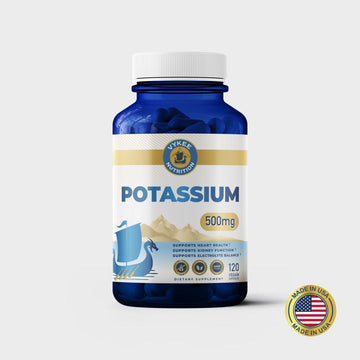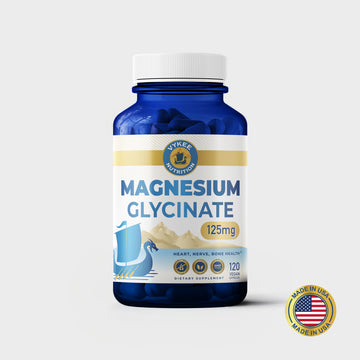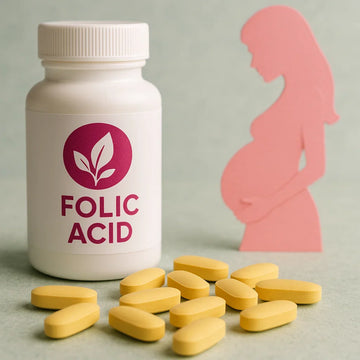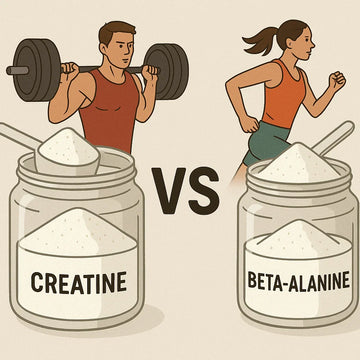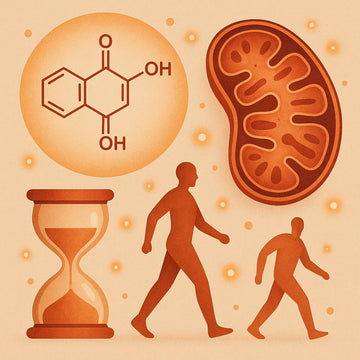What Is Folic Acid?
Folic acid is the synthetic form of folate (Vitamin B9), an essential B-vitamin that supports DNA synthesis, red blood cell production, and cell division. It’s especially important during pregnancy, as it helps prevent neural tube defects in babies (CDC).
Why Folic Acid Matters
- Critical for cell growth and repair.
- Helps prevent birth defects in early pregnancy.
- Supports red blood cell formation, reducing risk of anemia.
- Contributes to mental clarity and mood regulation.
Evidence-Backed Benefits of Folic Acid
1) Pregnancy & Neural Tube Development
- Daily folic acid supplementation before and during pregnancy reduces risk of neural tube defects (e.g., spina bifida) by up to 70% (WHO).
- Supports healthy fetal growth and development.
2) Energy & Blood Health
- Folate is required for red blood cell production.
- Deficiency may cause fatigue, weakness, and anemia (Mayo Clinic).
3) DNA & Cell Growth
- Essential for DNA synthesis and repair.
- Critical for rapidly dividing cells — important during pregnancy and childhood.
4) Brain & Mood Support
- Helps regulate homocysteine levels, linked to cognitive decline.
- Supports mental clarity and may lower risk of depression (PubMed).
Folic Acid in Food vs Supplements
| Source | Folate Content | Notes |
|---|---|---|
| Leafy greens (spinach, kale, romaine) | High | Best natural sources |
| Legumes (lentils, chickpeas, beans) | High | Plant-based folate source |
| Citrus fruits (oranges, grapefruit) | Moderate | Complement folate-rich meals |
| Fortified grains (bread, cereals, pasta) | Very high | Fortified with folic acid in many countries |
| Supplements (Vykee Vitamins) | Controlled dosage | Reliable for meeting daily needs |
Use Cases for Folic Acid
| Goal | How Folic Acid Helps | Recommended Use |
|---|---|---|
| Pregnancy planning | Prevents birth defects | 400 mcg daily, before and during pregnancy |
| Energy & blood health | Supports red blood cell formation | 400–800 mcg daily |
| Mental clarity | Regulates homocysteine, supports cognition | 400 mcg daily |
Dosage & Timing
- Adults: 400 mcg daily.
- Pregnancy: 400–800 mcg daily, starting before conception.
- Timing: Can be taken with or without food.
Safety & Side Effects
- Generally safe at recommended doses.
- High doses may mask Vitamin B12 deficiency.
- Always consult a healthcare provider during pregnancy.
Vykee’s Viking Take
For Vikings, strength came from family and legacy. Folic acid is the modern shield of life — protecting new beginnings, fueling energy, and supporting vitality. It’s not just for expecting mothers, but for anyone seeking resilience and clarity.
More Relevant Information
- Vykee Women’s Health collection
- Vitamins & Essentials
- Iron: Energy & Cognition (Vykee blog)
- Magnesium Glycinate (Vykee blog)
FAQs
Why is folic acid important during pregnancy?
It prevents neural tube defects in developing babies and supports overall fetal growth.
How much folic acid should I take daily?
Most adults need 400 mcg. Women planning pregnancy should take 400–800 mcg daily.
Can I get enough folic acid from food?
Yes, but supplementation ensures consistency, especially during pregnancy.
Does folic acid boost energy?
Yes. It supports red blood cell production, helping reduce fatigue linked to anemia.
Is folic acid the same as folate?
Folate is the natural form found in food, while folic acid is the synthetic form used in supplements and fortified foods.
Can men benefit from folic acid?
Yes. Folic acid supports cell repair, energy, and cardiovascular health in both men and women.
Conclusion
Folic acid is more than a prenatal vitamin — it’s a foundation for vitality, energy, and life itself. Whether you’re preparing for pregnancy, boosting energy, or supporting mental clarity, folic acid is essential. Vykee ensures you get the right balance for a strong, resilient future.
